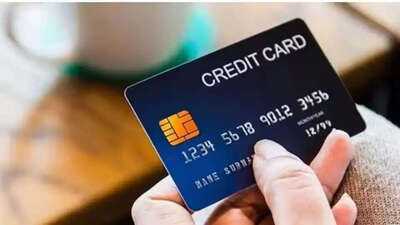Credit Card Rejection: Common Reasons and Proven Tips to Improve Approval Chances
If your credit card application has been rejected by a bank or financial institution, you are not alone. Every year, thousands of applicants face rejection due to small mistakes or missing financial criteria. While the experience can be disappointing, understanding the underlying causes can help you fix the issues and reapply successfully in the future. Here’s a detailed look at the most common reasons behind credit card rejections — and how you can prevent them.
1. Poor Credit ScoreYour credit score plays a crucial role in determining whether your credit card application will be approved or not. Generally, a score below 750 is considered risky by lenders. This score reflects your repayment behavior — whether you have paid your previous loans or bills on time. Late payments, loan defaults, or unpaid dues lower your score, reducing your chances of getting a card.
Tip: Regularly check your credit report and make timely payments to maintain a strong score above 750.
Each bank sets a minimum income limit for different types of credit cards. If your income is below that threshold, your application is likely to be declined. This requirement helps banks ensure that applicants can handle repayment responsibilities.
Tip: Choose a card that suits your current income range or apply after your income increases.
Having multiple ongoing loans or EMIs signals to banks that your financial burden is already high. Lenders may assume that taking on additional debt could strain your repayment capacity.
Tip: Try clearing off smaller loans or consolidating debts before applying for a new credit card.
If you change jobs too often or have just started a new position, banks may view you as financially unstable. Credit card issuers prefer applicants with a consistent employment history, usually at least six months to a year in the same job.
Tip: Apply for a card after establishing stability in your current employment.
A simple mistake — like an incorrect birth date, address, or employment detail — can lead to rejection. Banks verify every piece of information you provide, and discrepancies may create doubts about your credibility.
Tip: Double-check your application for accuracy before submission.
Submitting applications for several cards simultaneously may make you look credit-hungry. Each application triggers a “hard inquiry” on your credit report, which can temporarily lower your score and reduce your approval chances.
Tip: Space out your applications and focus on one card that matches your profile.
Most banks issue credit cards only to individuals between 21 and 60 years of age. If you fall outside this range, your application will likely be rejected automatically.
Tip: Always check the eligibility criteria for age and income before applying.
If you have pending payments on old credit cards or unpaid personal loans, lenders may see you as a high-risk applicant. Even small overdue amounts can hurt your application.
Tip: Clear all outstanding debts and update your credit report before applying for a new card.
To increase your chances of getting a credit card:
-
Check your credit report regularly for errors and rectify them immediately.
-
Maintain a steady income and avoid job hopping frequently.
-
Keep your credit utilization ratio below 30% of your total limit.
-
Avoid multiple applications within a short period.
-
Pay all bills and EMIs on time to build a strong repayment history.
Over time, these responsible financial habits will not only improve your credit score but also make you eligible for premium credit cards with better rewards and lower interest rates.
Final ThoughtsGetting a credit card rejection is not the end of the road — it’s simply a signal to reassess your financial habits. By maintaining a healthy credit score, meeting eligibility criteria, and applying strategically, you can turn that “no” into a confident “yes” the next time you apply.
You may also like

NATO expert issues drone war warning to UK and Europe as Russia 'drives wedges'

Man's Rolex seized at Delhi airport; HC provides relief— Check how customs rules apply to declaring high-value items

Instagram introduces a new feature called Watch History for Reels. Learn how to rewatch previously viewed Reels here.

How humans almost vanished from Earth in 70,000 BCE due to volcanic winter and population collapse

Martin Lewis shares genius advice on how to keep home warm in winter - and it's free







